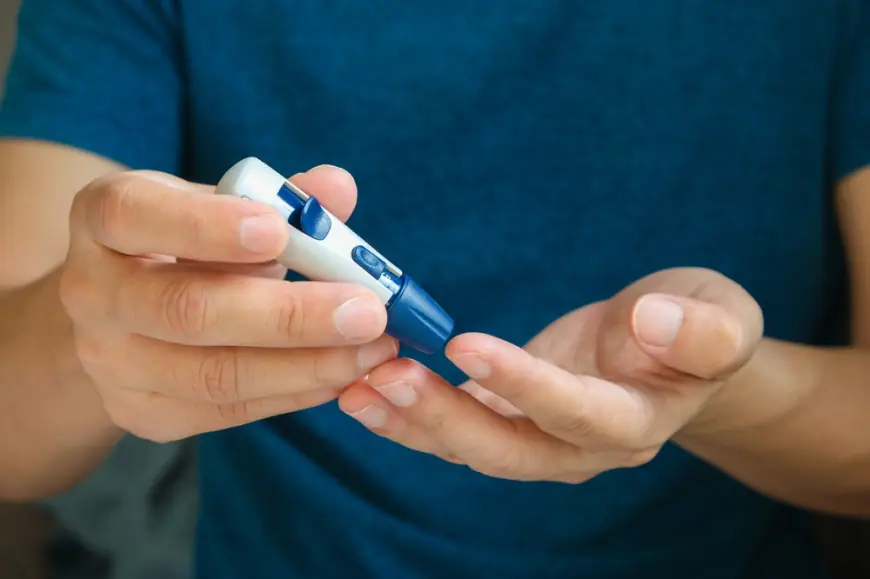Sugar-Coated Truths: What We Often Get Wrong About Diabetes
Think you know diabetes? Uncover the common myths and get the real facts—click to learn what most people misunderstand about this condition.

We hear about it constantly, diabetes. But how much of what we know is true? Chances are, you have heard things like “diabetes only happens to people who eat too much sugar” or “it’s not a big deal if you just avoid sweets.” But here is the thing: there is a lot more to the story. And many of the things we think we know? They are either outdated, oversimplified, or only plain wrong.
In this article, we break down the biggest misconceptions surrounding diabetes mellitus. We will go over what causes it, what does not, and how understanding the truth can make managing or preventing it easier. Whether you or a loved one is living with it, or you are simply curious, this blog is for you.
Is Sugar the Enemy?
Understanding the real relationship between sugar and diabetes
Let’s get this straight: eating sugar does not cause diabetes mellitus. But it is also not that simple.
There are two main types of diabetes:
-
Type 1 Diabetes: This is an autoimmune condition where your body attacks the insulin-producing cells in your pancreas. It has nothing to do with diet or lifestyle.
-
Type 2 Diabetes: This one is more common and can be influenced by weight, physical activity, genetics, and, yes, your eating habits. But not just sugar.
Moreover, sugar is found in many things you would not expect, like pasta sauces, bread, or salad dressings. It is not just cakes and soda.
So no, sugar alone will not give you diabetes mellitus. But regularly eating too many sugary foods can increase the risk if it contributes to weight gain and insulin resistance.
Can You Feel High Blood Sugar?
Why relying on symptoms alone might not be enough
You might think you would "feel it" if something were wrong. Tired all the time? Thirsty? Blurry vision? Sure, these can be signs. But many people with diabetes mellitus, especially in the initial stages, feel fine.
That is one of the most dangerous things about it. You might not feel anything until the condition is already affecting your body.
That is why regular screenings matter. Especially if you:
-
Have a family history of diabetes
-
Are over 45
-
Are you overweight or inactive
Additionally, some people go years without a diagnosis because they assume they are just “a little tired” or “getting older.” But ignoring it does not make it go away; it just gives it more time to cause harm.
Do You Have to Cut Out Carbs Completely?
The truth about carbs and diabetes management
Here is a common myth: “If you have diabetes mellitus, you can’t eat carbs.” Let’s break that down.
Carbohydrates turn into glucose (sugar) in your body, which is why many people think they are the problem. But not all carbs are created equal.
Whole grains, legumes, fruits, and vegetables contain carbs, but they also contain fiber, vitamins, and minerals. Processed carbs, like white bread or sugary snacks, are what you want to watch closely.
Furthermore, cutting carbs can backfire. It can cause energy crashes or even trigger overeating later. Instead, the goal is to balance, not restrict yourself completely.
Is It Always Caused by Lifestyle?
Why blaming people is not simply wrong, it is harmful
You have heard someone say, “They gave themselves diabetes mellitus.” That is not just false; it is unfair.
Type 1 diabetes has nothing to do with personal choices. And while lifestyle can influence Type 2, genetics also plays a key role. Some people do “everything right” and still develop diabetes. Others may have poor diets and never get it.
Moreover, this blame game often leads to shame, which can stop people from getting help or even talking about their condition.
Here is a better approach: Focus on support, not judgment. The more we understand the real causes of diabetes mellitus, the better equipped we will be to manage or prevent it, without guilt or stigma.
Is Insulin a Last Resort?
Why taking insulin does not mean you have failed
This one is tough because it is often loaded with emotion. Many people want to go on insulin means they did not “try hard enough.” But that is not how it works. Diabetes is a progressive condition. Over time, your body may make less insulin or stop responding to it. Medications, lifestyle changes, and even insulin are all tools. Not punishments.
Additionally, insulin helps prevent long-term complications like nerve damage, vision loss, and kidney disease. Delaying it can do more harm than good.
The takeaway? If your doctor recommends insulin, it is not a failure. It is a step forward.
Can You Outgrow Diabetes?
Why managing diabetes is a long-term commitment
Especially with Type 2 diabetes mellitus, some people think if their blood sugar goes down, the diabetes mellitus is gone. But it is not that simple.
Yes, you can reach normal blood sugar levels through weight loss, diet changes, or medications. But that does not mean you are “cured.” Think of it like being in remission. The risk is still there, and old habits can bring it back quickly.
Furthermore, managing diabetes is not a one-time fix. It is an ongoing process that involves checking your numbers, staying active, and working closely with your care team. So, while the symptoms might ease, the need for awareness does not go away.
The Power of Knowing the Truth
What you gain when you stop believing the myths
Here is what happens when you get clear on the facts:
-
You stop blaming yourself or others.
-
You make smarter food and lifestyle choices.
-
You catch the signs early, before things get worse.
-
You feel more in control.
Additionally, understanding the real story behind diabetes mellitus helps create more empathy, both for yourself and others. And that alone makes a significant difference.
Conclusion: Small Truths, Big Difference
At the end of the day, misinformation about diabetes mellitus does not just create confusion; it can delay care, fuel unnecessary guilt, and make life harder for those living with the condition. By challenging the common myths and replacing them with real, practical knowledge, we are not just changing how we talk about diabetes mellitus; we are making room for better choices, earlier diagnosis, and more empathy. Understanding the truth lets you ask better questions, support others without judgment, and act based on facts rather than fear. And in a world full of mixed messages, that kind of clarity can go a long way.
What's Your Reaction?
 Like
0
Like
0
 Dislike
0
Dislike
0
 Love
0
Love
0
 Funny
0
Funny
0
 Angry
0
Angry
0
 Sad
0
Sad
0
 Wow
0
Wow
0

















































